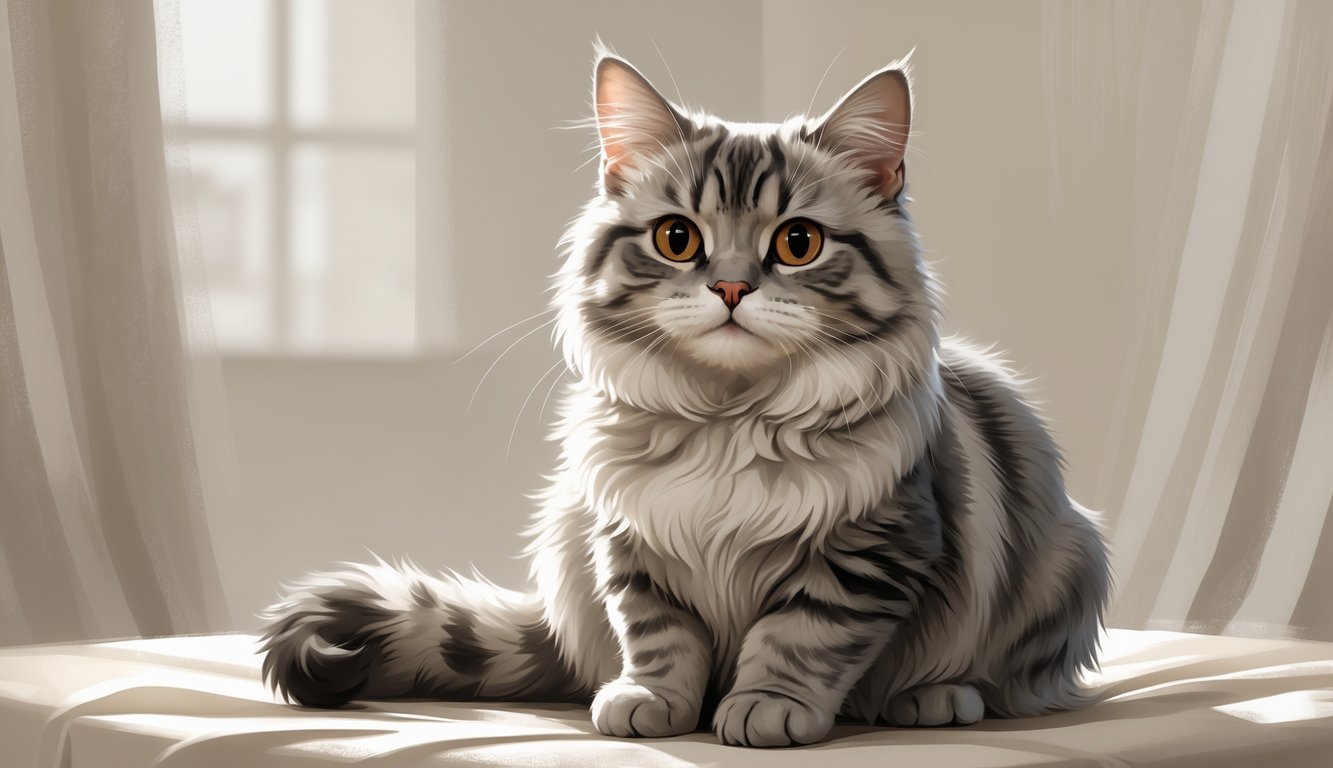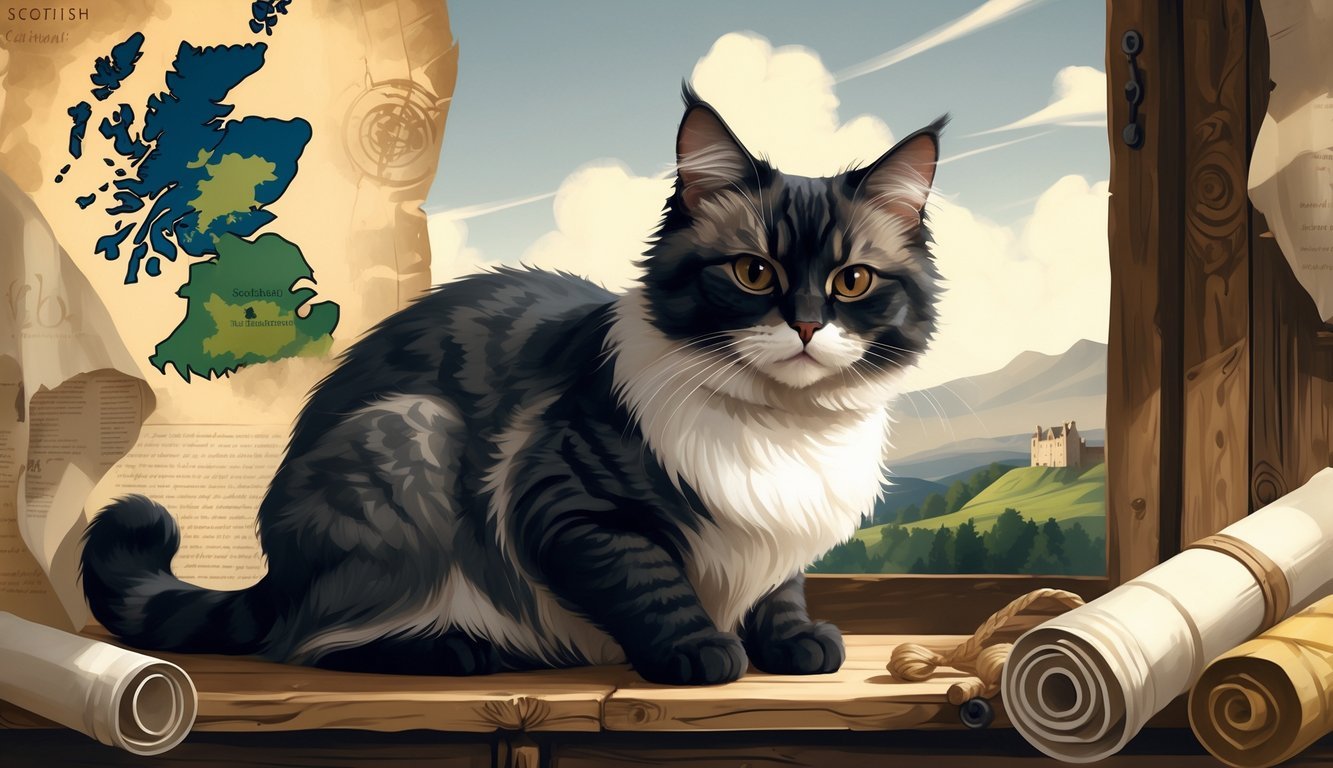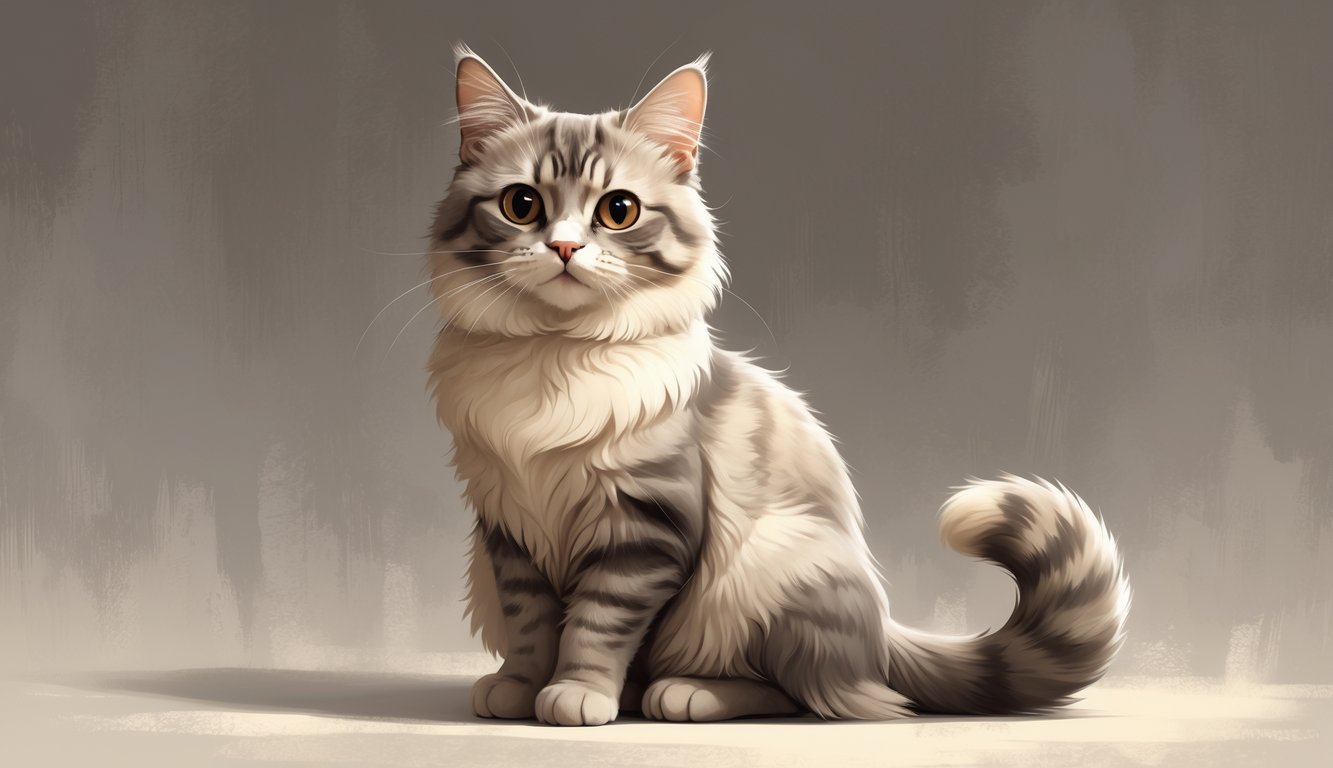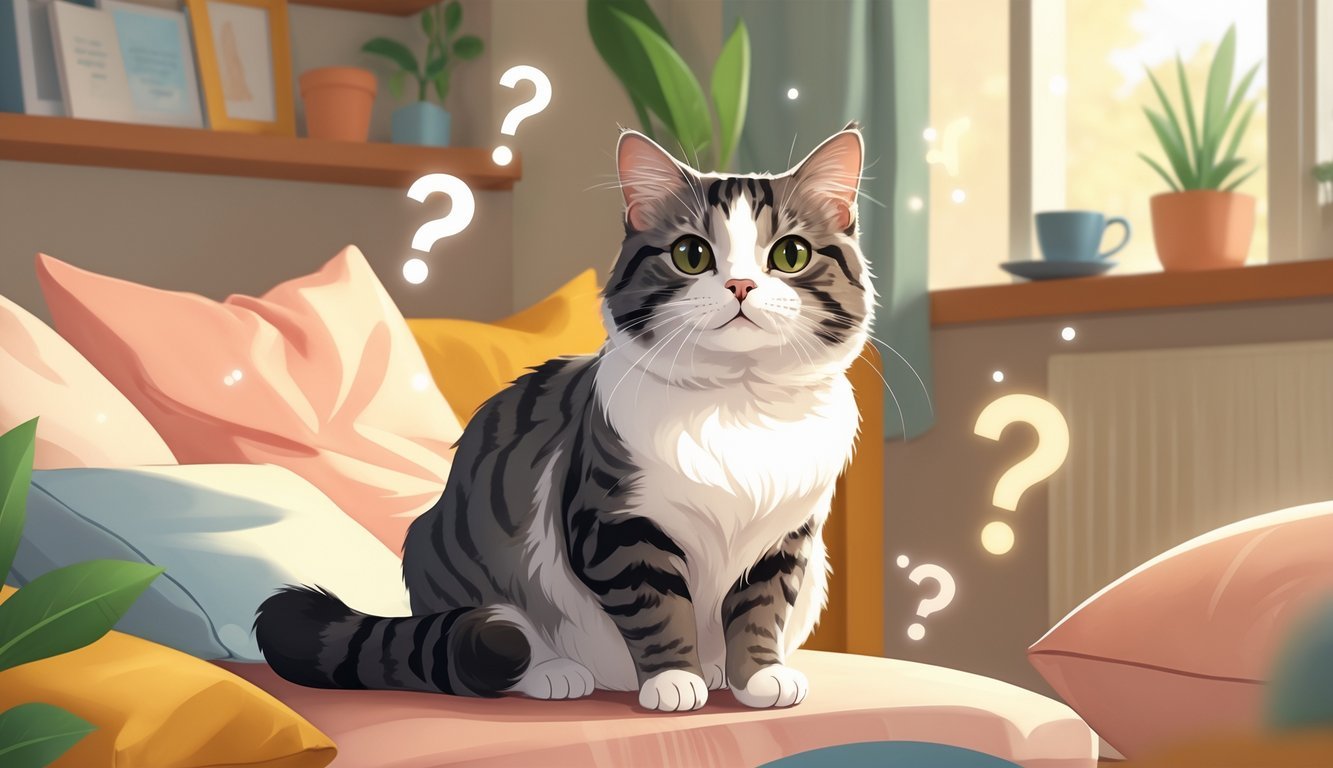PsychNewsDaily Publishers
100 Summit Drive
Burlington, MA, 01803
Telephone: (320) 349-2484
PsychNewsDaily Publishers
100 Summit Drive
Burlington, MA, 01803
Telephone: (320) 349-2484
Scottish Folds are affectionate, medium-sized cats known for their distinctive folded ears, playful nature, and low to medium energy levels. They require regular health checks and care.

The Scottish Fold cat stands out with those adorable folded ears. They give the cat such a charming, curious vibe, don’t they? This breed acts friendly and affectionate, and you won’t find them too high-maintenance. If you’re after a loving, low to medium energy pet, the Scottish Fold really fits the bill.
Scottish Folds love to cuddle, but they also value their own space. They strike a nice balance between being social and independent, which is honestly pretty refreshing.
When you meet a Scottish Fold, you’ll notice their soft, dense coat and those big, expressive eyes right away. They’re playful and smart, and their behavior just makes them feel like a true part of the family.
That signature ear shape comes from a natural gene mutation. Because of this, you’ll want to pay attention to their health needs to keep your cat comfy and happy.
If you’re new to cats or just looking for a new companion, Scottish Folds offer a sweet personality and unique look that a lot of cat lovers can’t resist.

The Scottish Fold’s story really begins with a special cat named Susie and a quirky genetic twist. Breeders got involved and carefully shaped the breed, which has become one of the most popular cats around.
Back in 1961, on a farm in Tayside, Scotland, a white barn cat named Susie caught everyone’s attention. Her ears folded forward, thanks to a natural mutation in her ear cartilage.
William Ross, a shepherd, noticed Susie’s unique look. He started the breed by pairing her with other cats and passing on the folded-ear gene.
This mutation really sets the breed apart from the usual straight-eared cats. Susie’s story marks the start of the Scottish Fold’s unique history.
Breeders worked with Susie and her kittens, crossing them with breeds like the British Shorthair and American Shorthair. This helped boost the breed’s health and looks while keeping those folded ears.
Cats from this line with straight ears sometimes get called Highland Folds.
Since the folded ear trait comes from a gene that affects cartilage, breeders have to be careful. Too many folded-ear genes in one cat can cause health issues.
Responsible breeders today avoid pairing two folded-ear cats, which helps keep the kittens healthy.
After its start in Scotland, the Scottish Fold gained fans worldwide. Cat clubs like the Governing Council of the Cat Fancy (GCCF) in the UK and the Cat Fanciers’ Association (CFA) in the US recognized the breed in the 1970s.
These clubs set breeding rules to protect the cats’ health and looks. Now, Scottish Folds are loved in many countries.
You’ll spot them at cat shows and in homes, thanks to their unique appearance and easygoing nature. It’s wild how one unusual cat can spark something so big.

Scottish Folds really stand out with their distinctive looks and gentle, loving vibe. They’re medium-sized, with plush coats, and they genuinely enjoy gentle play and being close to people.
Caring for them is pretty straightforward, but you do need to watch for a couple of health things.
Their folded ears bend forward and down, giving their heads a rounded, soft look. The round face and big, round eyes make them look especially sweet and expressive.
These cats have a medium-sized, solid body and usually weigh between 6 and 13 pounds. Their coat feels very soft and ranges from short to medium in length.
You’ll see them in all sorts of colors—blue, solid shades, tabby, and even mixed patterns. Their tails are straight and medium in length, which balances out their round bodies.
Scottish Folds are super affectionate and love to be near you. They’ll often follow you around the house, but they aren’t needy about it.
They’re known for being easygoing and enjoy gentle play. Most Scottish Folds get along well with kids, other cats, and even dogs.
They like attention, but don’t demand it constantly. It’s a nice balance of independence and friendliness.
Their activity level sits somewhere in the middle. They’ll play, but they’re also content to curl up on your lap for a while.
Scottish Folds often live about 11 to 15 years. Still, you’ve got to watch for some health issues. The folded ears come from a gene mutation that can cause osteochondrodysplasia—a bone and cartilage disorder.
This sometimes leads to arthritis or joint pain, especially in the tail and legs.
Their ear shape makes ear infections more likely, so regular ear cleaning goes a long way.
They can also be prone to heart issues like hypertrophic cardiomyopathy and kidney diseases such as polycystic kidney disease. Regular vet checkups help catch these early.
You won’t need to spend ages grooming a Scottish Fold. Their short to medium coat just needs a weekly brush to reduce shedding and keep it smooth.
Keep an eye on their ears and clean them with a vet-approved cleaner to avoid infections.
Check their nails regularly and trim them if they get too long.
A balanced diet with quality food supports their health. You’ll want to provide interactive toys and encourage moderate exercise to keep them fit.
Pay attention to how they move, and ask your vet if you notice any stiffness or pain. With the right care, you’ll have a happy, healthy Scottish Fold by your side.

Here are some quick answers about Scottish Fold kittens, their quirks, and how long they usually live. You’ll also find info about health concerns, caring for your kitten, and how they behave with kids or other pets.
Scottish Fold kittens usually cost between $1,000 and $3,000. The price depends on the breeder’s reputation, the kitten’s family line, and coat color.
Scottish Folds have those trademark folded ears. Their faces are round, their eyes are big, and their bodies look soft and padded. Males weigh about 9 to 13 pounds, while females are usually 6 to 9 pounds.
Most Scottish Folds live around 11 to 15 years. Serious health problems can shorten their lifespan.
Yes, Scottish Folds can have cartilage issues that affect their ears and bones. Some may walk with difficulty or feel pain. Diabetes can also be a risk, so regular vet visits matter.
Feed them a balanced cat diet and make sure fresh water is always available. Try not to pick them up too much—they might not love it.
Give them gentle attention and a safe space where they can explore on their own terms.
Scottish Folds usually enjoy being around people and other pets, especially if you take the time to introduce them gently.
They like quiet attention. Still, they might not appreciate being handled too roughly—who would?
Most of the time, they’re calm and social with kids and animals.